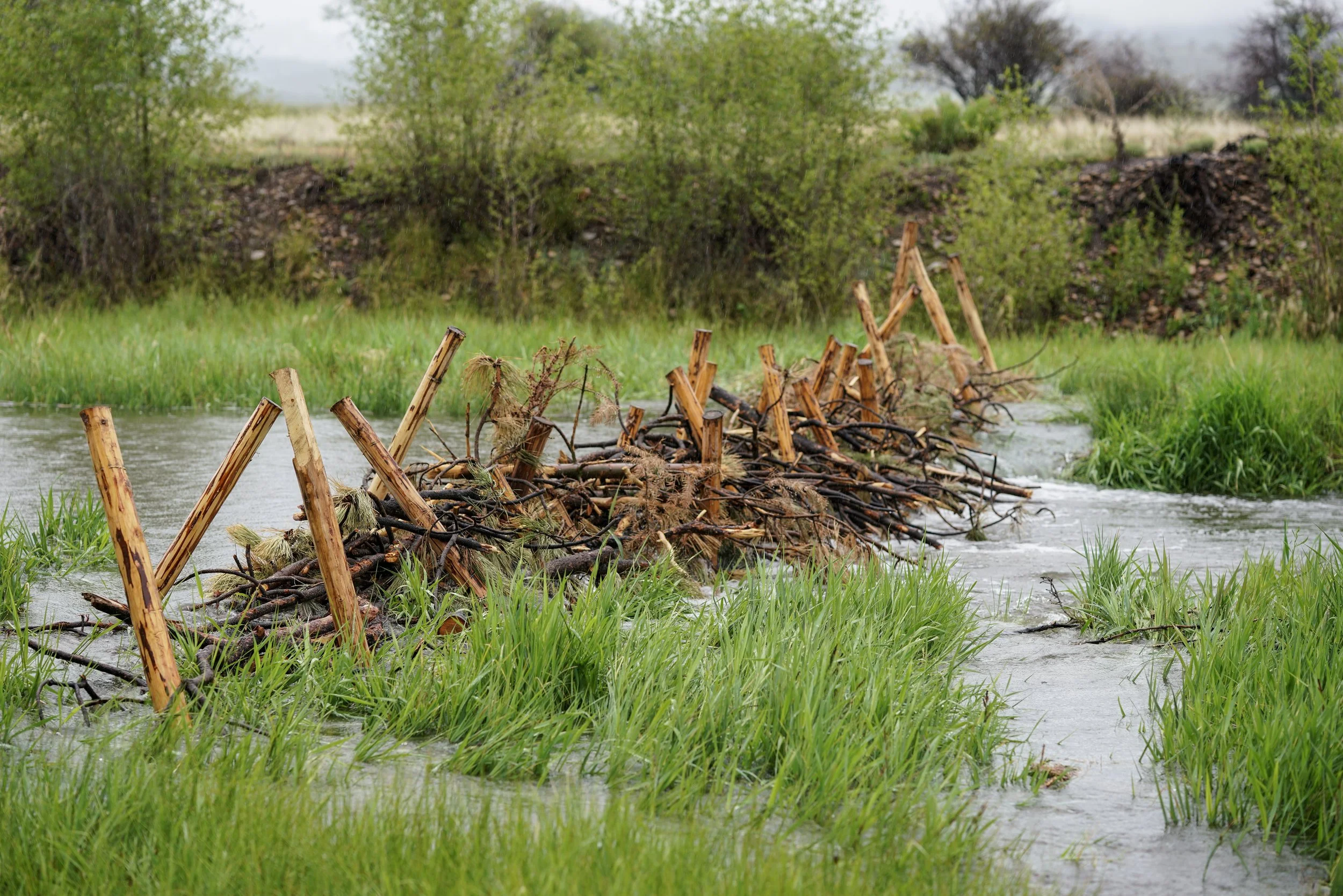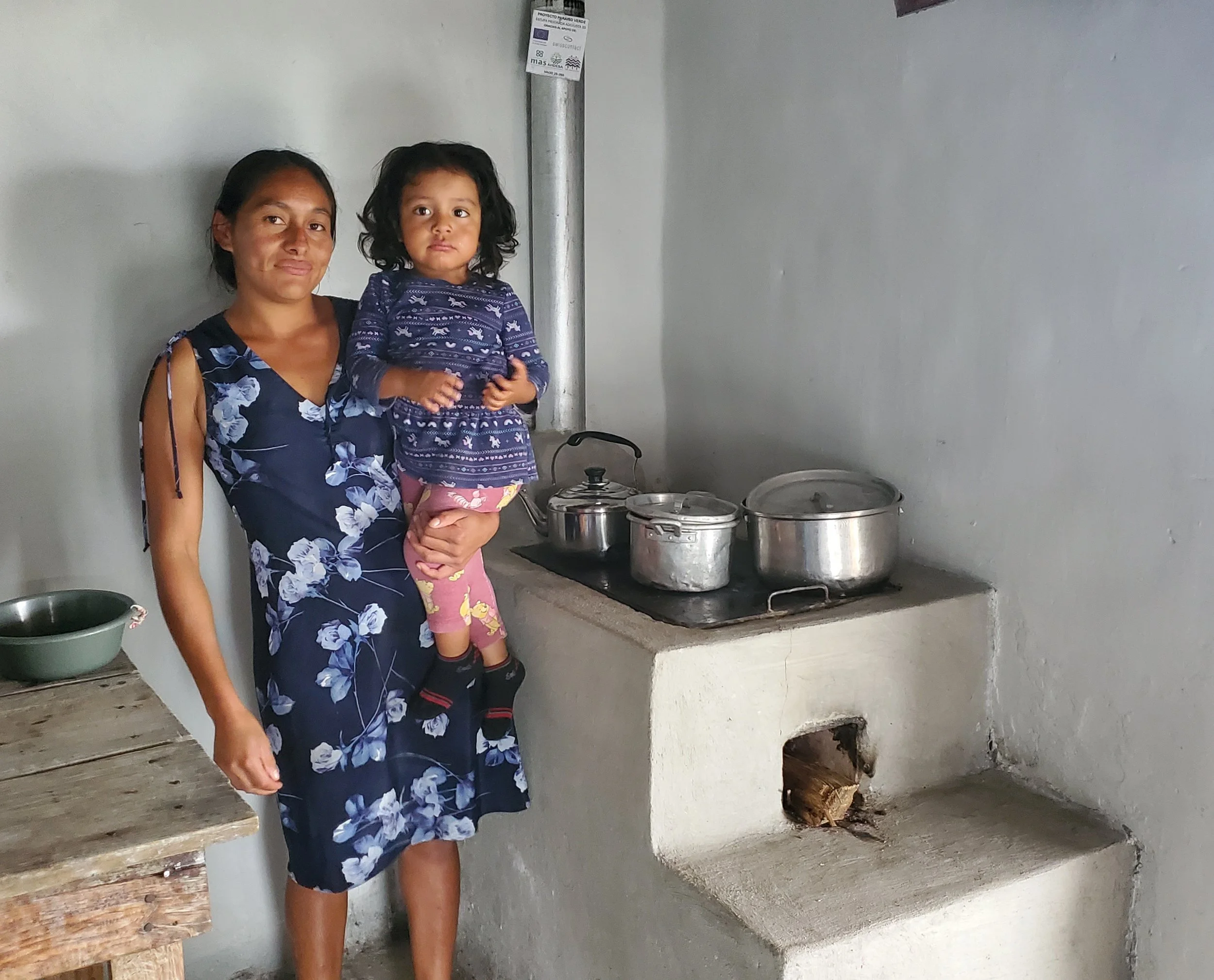
FORESTS FOREVER
Fall 2023 • Trees, Water & People Newsletter
A Letter from Sebastian Africano, Executive Director
Since Trees, Water & People’s (TWP) founding in 1998, we’ve worked closely with students and professors at
Colorado State University (CSU) to add value and depth to our programs, and in-turn provide an opportunity for students to gain practical, real world experience doing work that matters.
It’s extremely gratifying to reconnect with young professionals who comment on the impact of a TWP presentation or internship that influenced how they show up in the world. What’s great is that we work with departments and colleges across the university — from Business, to Natural Resource Management, to Public Policy, Anthropology, and Tourism — we always have something to contribute from the breadth of TWP’s experience.
This year we’ll add to that breadth through a partnership with the Laramie Foothills Bison Conservation Herd — a program hosted at CSU’s Animal Reproduction and Biomedical Technology Laboratory. Our goal is to attract more Native American students into educational and work opportunities with the bison herd on campus, which are being reproduced to repopulate native bison genetics onto the Great Plains through partnerships with Tribes.
This program will address several of our programmatic priorities, by strengthening our relationship with Tribes in the region, supporting youth development, and reintroducing one of the original stewards of the West — bison — to the landscape. It will also contribute to the health of our region and its people, acknowledging the damage that was done during the period of bison extermination and Western expansion, and taking concrete steps to reverse it.
Long after our time on earth, there will be people working to restore the planet and its ecosystems from the effects of human decisions. Investing in young people today ensures continuity in those efforts, giving them the confidence, resources, and opportunity to contribute in a meaningful way and to craft careers that help them sustain their journeys.
We’re grateful that we can be a resource for young people exploring careers in conservation and cultural preservation — we’ll need all the help we can get as climate change compounds the challenges we’re facing today.
Sebastian Africano
Executive Director
Trees, Water & People
Involving Youth in Outdoor Play and Environmental Stewardship
by Indigenous Lands Program Staff
Youth development is a big part of our work here at Trees, Water & People (TWP). In Colorado, we partner with the Ute Mountain Ute Tribe’s (UMUT) local charter school, Kwiyagat Community Academy (KCA), and other local organizations to involve youth in outdoor play and environmental stewardship work.
With funding from the First Nations Development Institute, TWP is partnering with KCA to install school gardens during community events that involve the students. Classes will have access to raised-bed vegetable gardens just outside the school doors that will introduce young learners to tasty vegetables such as cherry tomatoes, sugar snap peas, sweet carrots, and red beets, while providing an opportunity for kids to learn to garden and get their hands dirty during the school day. An ethnobotany garden will be planted around the school grounds and include species important to Ute people, with interpretive signage in the Ute language. Curriculum is being developed specific to the ethnobotany garden that will allow instructors to teach children about their culturally important plants, and find them right outside the school’s front doors. Borrowing from other Indigenous cultures, a three sisters garden is being planted, filling the schoolyard with corn, squash, and beans, and including a learning circle in the center so that class activities can be held in the garden. With abundant outdoor learning areas, students will have the opportunity to take advantage of good weather and increase their time in the outdoors.
KCA’s school gardens tie in closely with ongoing work with to improve the availability of native and culturally important plants for traditional use. Riparian restoration on Tribal lands has included repairing degraded landscapes by revegetating with native and culturally important plants (in addition to other concurrent strategies). Children who attend KCA have been actively involved in restoring their Tribal lands through these plant restoration projects. These field trips often result in kids chasing insects or playing in or near the Mancos River, after all the planting work is done!
There is an overwhelming amount of evidence that children’s time spent in the outdoors improves their physical and mental well-being, but for the Ute people, it also fosters a connection to the land that has been passed down from generation to generation.

“Approaches to conservation and restoration that honor and put communities first are vital in places like New Mexico, where Indigenous and Hispano communities have lived in relationship with the land for dozens of generations. Trees, Water & People have exemplified this approach, which the McCune Foundation values and appreciates.”
– Carla Romero, Executive Director McCune Charitable Foundation
Advocating for Gender Equity with Perseverance and Optimism
by Central America Program Staff
“We have worked to bring economic solidarity towards women, working in home gardens, fish tanks, raising chickens, and we are expanding all of that. We are women workers in agriculture, we are very diverse at work, and we continue to fight for that, for our rights, so that our rights are heard. So that they do not see us as insignificant, but as if we can get ahead with what we know, and if we don’t know it, we will learn it to be able to replicate it.”
— Norma Elizabeth Erazo Molina, member of ADECIME in the community of La Labor, Aguachapan, El Salvador.
This past February, our TWP team had the privilege to travel to Honduras, Guatemala, and El Salvador, where we were inspired by courageous women who continue to advocate, organize, and fight for more inclusive and equitable opportunities for their communities and future generations.
In Honduras, we visited various homes where women have adopted the improved cookstove for the preparation of meals like baleadas and tortillas for local sales. They are creating a small economic enterprise to support their families. And they are showing others how to successfully use and care for their cookstoves that also improve their health and economic benefits for their households.
In El Salvador, we had the privilege to visit with a new community women’s group called: “Asociación de Desarrollo Comunal Integral de Mujeres Emprendedoras”
— ADECIME, in Caserio Hacienda La Labor. This group of 50 women are working as co-managers of the buffer zone of La Labor (40 hectares), where they are working on creating firebreaks, planted 200 trees for reforestation, and are protecting their water basin that supplies three surrounding communities. They also focus on workshops on first aid and preventing violence against women; trainings in agroecology, agriculture, and vegetable management for food security and economic solidarity; and teaching their community members about environmental awareness and how to properly manage their forest and water.
In Guatemala, leaders like La Benedicion’s women’s group President Maria Gabriela Fuentes and Vice President Lesbia Perez Cifuentes continue to spread their knowledge and lessons learned from their two-year, gender-based violence project. They are always reflecting on their gratitude for the opportunity and space to participate in this project and share their experiences and challenges as women. What an honor it is to work with such powerful women that are role models to all of us!
PEOPLE OVER PROJECTS
In 2023, TWP turned 25 years old.
We’ve learned so much along the way. We’ve celebrated successes, learned from evaluations, and adapted our models and methodologies to fit local needs.
Nevertheless, did you know that 42% of nonprofit organizations have less than three months of operating reserves?* That’s a hard way to plan for the future. How can organizations like TWP focus on building tangible, long-term change while working with funding that is generally short-term in nature?
The most critical aspects of our work – showing up consistently, meeting people where they are, building trust, and designing programs that move at the pace of local realities – are at odds with project-based time frames.
Projects have timelines and inevitably end — people’s lives go on.
There is no easy way to mark when someone’s livelihood goals are fulfilled, or when a watershed is free from harm, or when a family has enough healthy food to eat, or is liberated from endemic poverty. TWP exists to drive lasting change that lifts people up, so they can steward natural resources for generations to come.
That’s why our focus for the next 25 years will be on people over projects. Because when we invest in people, help them acquire new skills, build trust-based relationships, and give them the resources to create change...the impact will follow.
That’s what works — and we can only do that with long-term thinking.
Every day is an opportunity to work together for our shared climate future.
We can’t solve challenges that have compounded over centuries with short-term thinking, transactional projects, or short-term funding cycles. As a TWP supporter, you understand this, and trust that we know our people, understand their challenges, and invest in their priorities.
To keep pace with the challenges we face, we are growing our team with people that know, understand, and care for the
places where we work, and the communities that live there.
The more talented our team, and the closer we are to the root causes of the challenges we seek to solve, the better results we can deliver.
This fall, you can help TWP create 25 more years of long-term impact by:
• Joining our Evergreen Circle at $25 a month.
• Making a $25, $250, $2,500, or one-time gift of any amount.
• Telling your friends, family and colleagues about TWP.
Dedicated individuals, working together, can create meaningful change daily.
Thank you for supporting Trees, Water & People.









When the 110 families of El Asintal resettled in Guatemala, they arrived home to a near-empty plot of land, with scarce resources to rebuild.
Like many Indigenous communities in the region, these families were displaced amidst Guatemala’s violent civil war. The government’s designation of lands for resettlement in the early 2000s was an opportunity to return home, but not without significant debt and great hardship.